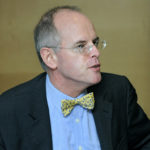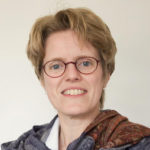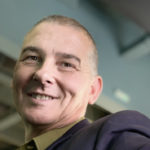Berlin, Brussels, Bremen, 8 December 2020. The initiative United Universities of Europe organises panel debates on higher education and science policy. The 2nd of these debates examines “Vocations and Competencies in the Age of European Universities.”
In a first step, professionals, policy officers, coordinators of the newly formed European University Alliances (watch this conversation with them here) talk about their international, challenge-based, change-oriented work. A short intermission informs how UUU is poised to mirror and shadow the growth of these new structures, the European University Alliances (see here).
In part two, Peter van der Hijden, connoisseur of European science policy, points at the new professions being created in and around the Alliances and the re-skilling taking place in the universities, in their libraries, data management, admissions etc.. Eva-Maria Feichtner, Vice President for internationalisation at the University of Bremen, sees great chances in the university networks for academics and employers alike – creating a competitive international scientific education, as well as attractive career paths and staff journeys across the alliances. Her counterpart, Jörg Niehoff, policy officer at the European Commission, provides political context about role of higher education institutions in providing skills for the green and digital transformation, the EU transformation agenda for HEI, the experience from the Labour Market Relevance and Outcome partnerships and how all this translates into the context of the European University Alliances.
Guests:
- Peter van der Hijden, higher education strategy advisor
- Eva-Maria Feichtner, YUFE, Universität Bremen, Vice President International and Diversity
- Jörg Niehoff, European Commission, DG EAC, Policy Coordinator University-Business cooperation
Host:
- Tino Brömme, ESNA European Higher Education News
TRANSCRIPT

This is the second part of the United Universities of Europe panel discussion from Berlin. After the first half, we are now talking with Peter von der Hijden, our man in Brussels. Hello, Peter. We have been starting a conversation about the professions in the European University Alliance. When we noticed that they are structured like research projects in work packages with certain topical fields which reflect the tasks and the working fields and the professions in this alliances. Do you think that this University Alliances are creating a new group of staff, a new profession?
Peter van der Hijden Yes, I think so. Listening to the colleagues, the biggest change is the scope and extent, as Katrine said, and the speech. Now, what does it mean for the jobs? It is creating new jobs like directors, coordinators; the job of Tino, our kind host today, is a new job, you could say. But more exciting and more deeper for me is the transfer of the old jobs. And those old jobs are the people that I call the ‘gang of five hundred.’ And those are the five hundred Alliance task managers, and they do the real work of the Alliance. And those people have the job, they have a regular job in administration, education, research and innovation. They are, for example, programme directors, locally, they are responsible for the virtual campus, locally, they are responsible for H.R., for the library, they are researchers and teachers. But now all over sudden, they find themselves to collaborate in the Alliance task teams, and they are now building the course catalogue for the Alliance, what they used to do on their own. They are building the virtual campus for the Alliance, what they used to do on their own. They are working in H.R. on a tenure for the whole alliance. So you can move jobs between the institutions. They are working on open sience for their institution, but now in the task team for the entire Alliance. And this is a change for those professionals. It’s a kind of upgrading. It helps them to benchmarking to become better professionals. It also helps to integrate the members of the Alliance, to a certain extent, it’s a partial merger. But if you focus on the professional aspect, this is motivational, this motivates these people. They suddenly, and that’s the perspective that I want to give, when you work in an Alliance task team, for the library, for the H.R., for the student admission, you have a career perspective, locally, of course, but also in the Alliance. You may, at some point, shorter or longer term, go work in another institution as part of the Alliance. When the kids leave the house, you can go for one year to Finland or to Rome because you have a career in the Alliance, even hopping to other alliances, as we were just encouraged to do by the colleagues putting forward their vacancies. So for me, that is something motivating, and it changes the nature of your work. It makes you start dreaming, even if you never leave the place where you work. In YUFE, they call this the ‘staff journey.’ And I think it’s a good idea, Tino, that you put the ‘gang of 500’ in the limelight, next to our dear coordinators and Presidents, of course.
Thank you, Peter, for this brief intervention.

And we come directly to Eva-Maria Feichtner, the vice president for international relations at the University of Bremen. Hello! I know you have to go at one o’clock, so we have to be quick with you. The interesting thing is, on one side, we have seen how the coordinators and the work package leaders and the project officers for the alliance are working. Now, we see your perspective as a Vice-President, responsible for the staff and for the management of the University Alliance. This keyword ‘staff journey,’ how does it relate to the jobs that these people have?
Eva-Maria Feichtner Well, let’s start from the idea of a ‘student journey,’ because I guess that’s more familiar to all of us. So we want students to move all over Europe, all over our different campi. And now our idea at YUFE was, it’s not only your studies, life is a journey, professional life is a journey. We’re convinced that if we want students to move around, the institutions can’t be solid. The people working at the institutions can’t be purely home based, they must have this experience themselves. So that’s what brought us to concentrating on this tough journey. So we are enabling our employees, enabling everybody working in the university environment, to go out, experience the building up of the European University, experience how their profession is carried out somewhere else, go and connect, go and meet with others and learn and develop.
We are thinking of that as a very physical thing. Right? We want people to go out on job shadowing projects and things like that. But we all know the pandemic has cut that short, pretty much brought it down to zero. And what we did, and I think that was pretty successful, is to quickly come up with training programmes, virtual training programmes that brought together people who otherwise wouldn’t have met in the same way. So as Peter pointed out, the librarian, the H.R. expert, they had the opportunity in a very low threshold way to meet, to connect. In a way, the pandemic has helped us to become more inclusive. I mean, just think for a moment, you just mentioned, well, the kids have left the house. They could go for a year somewhere. That’s the answer we get from many people whom we try to get moving here. They are saying, “no, I have three kids in school, what do you think? I’m not moving anywhere. And by the way, there’s a pile work”. And now I can go and tell them, “well, there’s a staff training tomorrow at two o’clock. It lasts for two hours. You can meet your colleagues in Finland, you can meet your colleagues in Spain. That’s your opportunity to experience Europe.” And people do. And people come back to us and say, “you know, that was great. And, you know, I’ll seriously think about going out now and taking up this burden of organising everything around, because I want to experience the real thing.” So we’re all waiting for the pandemic to be over to get back to a new normal that people can actually take up what they have started digitally now.
We have time for one more question, Eva. We have been talking about ‘lifelong learning,’ these are people who leave university to become professionals, but maybe come back. How can the Alliances contribute to this?
Eva-Maria Feichtner By offering lifelong learning to people in a more close-to-their job way than universities were doing that way back. So our dream is that our graduates go out and don’t forget YUFE, but come and visit every now and then, for professional development courses, for maybe taking up the role of a professional expert, advising our students, working together in challenge teams, or the like. So I think of professional development in its true sense lives from changing perspectives, in the same way we want researchers to take every now and then the position of a professional service staff member and vice versa. And we want people to go out from and come back to our Alliance. That’s what I think is the the truly enriching things we can work on.
This is the old communist idea to send the intellectuals to the camps.
Eva-Maria Feichtner Well, that’s a peculiar way to think about it, but maybe yes, let’s dare to say yes.
And why not? On the other side, the organisation bottom-up of the coordinators, who coordinate within the universities and between the members of the Alliance, is building up structure. It’s building up a creativity that hasn’t been there before. Well, Eva, I thank you so far.

Let’s go over to Jörg Niehoff, who is a policy coordinator at the European Commission, and let’s apply a last different perspective on the question we have today. Because the European Commission is now taking the money and putting it into programmes to push forward certain developments. So Jörg, the Transformation Agenda, as it is called, of the European Commission, where is it going? What is the direction?
Jörg Niehoff Yes, thank you to you and good morning to everyone. The Transformation Agenda is not yet there. So let me perhaps bring the context in here. Some of you might have seen that the Commission has published on the 30th September two communications that are relevant also for higher education institutions. Is the one on the European Education Area and the one on the European Research Area. And both put higher education institutions at the core of a transformation of the society. So what we want to do with the stakeholders, in particular the European universities and with the Member States, is to develop by the end of next year, a Transformation Agenda for higher education institutions. And that will not have the TGV speech that Nadine quoted before, perhaps rather long distance that a TGV can pass. And it is something that has to be co-created, co-designed with the stakeholders, with the policy makers at national level.
What we have identified in our communication, are four focus areas that we believe are important. The one is Connectivity among higher education institutions. That what we see also with European Universities, bring them in the context to work across borders on common challenges, but also connectivity with their local ecosystem, because that’s where you have societal impact, where you connect to the labour market, that is extremely important for us.
The second element is Inclusion. We want to have higher education institutions that are more open to a diverse student and research body. And, we had that before, also offer better opportunities for lifelong learning, which again makes it necessary to connect to the local ecosystem. Secondly, Digital and Green. I mean, if you look at all the big policies that we are currently driving, the green and digital transitions are at the core of these things. And I think Covid has made us much more aware of the need for digital transition. And there is also a dedicated communication on the Digital Education Action Plan. The green transition is equally important and there are again higher education institutions at the core of basically building the workforce and the skills and the competences that we need for the green transition. And that is something that I believe also European Universities can drive to a certain extent.
And the last one is Innovation in higher education, in education, in research, in driving transition. So what we expect to see by the end of next year, is somehow an alignment and agreement on what that Transformation Agenda should look like. What are the incentives that we need in terms of funding coming from different programmes, national, European, but also in terms of policy approaches that we need. And what we have learnt from other initiatives, like the HEInnovate initiative that supports the transformation of universities to become more entrepreneurial, more innovative, is that you need the bottom-up approach that we see here, but you also need some of the soft tools, self-reflection questionnaires that allow you to find a common direction where you want to go and the leadership that you need that drives that transition. So you need an understanding where to go, which is the direction, the leadership, and the commitment to drive that change. And today we look at European Universities, but I would really encourage all European universities to look at the other tools the DG EAC provides, be it labour market information experiences. I mean, a lot of the things that you are trying to drive, they also require that you have a better connectivity to the businesses to understand what are the requirements in terms of skills, transversal skills that you need for future jobs.
HEInnovate instrument, how has it been adopted yet? How does it work?
Jörg Niehoff It is something that has been going through a long, long way. It was designed together with the colleagues at the OECD at some point in time, and we have a number of building blocks. At the core, and that is accessible for all institutions, is the self reflection questionnaire that is also on the Internet that has been used by, I think, thirteen-hundred universities across Europe to drive their transition. I think more than twenty-thousand individuals have used that. So this is something that is not a benchmarking, but it is something that allows institutions with training programmes and etcetera to somehow position themselves: Where are we today in becoming or in being entrepreneureal innovative higher education institutions? And what are pathways for us to further improve on that? And of course, you can also use that in the context of European Universities. We have been contacted by some that want to use the tools as well.
The second is, that we are having, together with the OECD, country reviews, where countries approach us directly and say “listen, we want to have your support in analysing our system and showing pathways for development.” We are doing this, for example, currently with Slovenia, and we see that Slovenia is not only using this element ofhow to become more innovative with the educational system. At the same time they look also in labour market relevance of universities. So they are using two of our policies support mechanisms to have assistance in designing their master plan for higher education for the next years. And there we are closing a loop because, of course, the countries use our tools to find a way where they want to develop, that wwould inform the consultations for the Transformation Agenda, and so we somehow create a common directionality of where we go with the European system to make it overall more competitive and more powerful in terms of addressing the challenge that we have.
Jörg, thank you so much. This was a very, very fast summary of the European policy supporting and instructing the European Universities.
We can summarise that we have seen on one hand how inside the European University Alliances, the jobs, the positions, the professions of coordinators, project officers and work package leaders are creating a new network of professionals. We have also seen together with Eva-Maria Feichtner that the University management is trying to create interesting, attractive career paths so that the people who are steering and creating these University Alliances are well prepared and are learning all along the way. And also, we have seen the European Commission is supporting these efforts, is also pushing into a direction for creating new professionals that come out of the universities. So to help the universities develop their educational programmes and their research into a more European and more connected Europe. I want to thank all the participants for being today with us. I can only remind again of Dante, who said that we are here to acquire virtue and new knowledge. And that is what the European University Alliances are doing.
